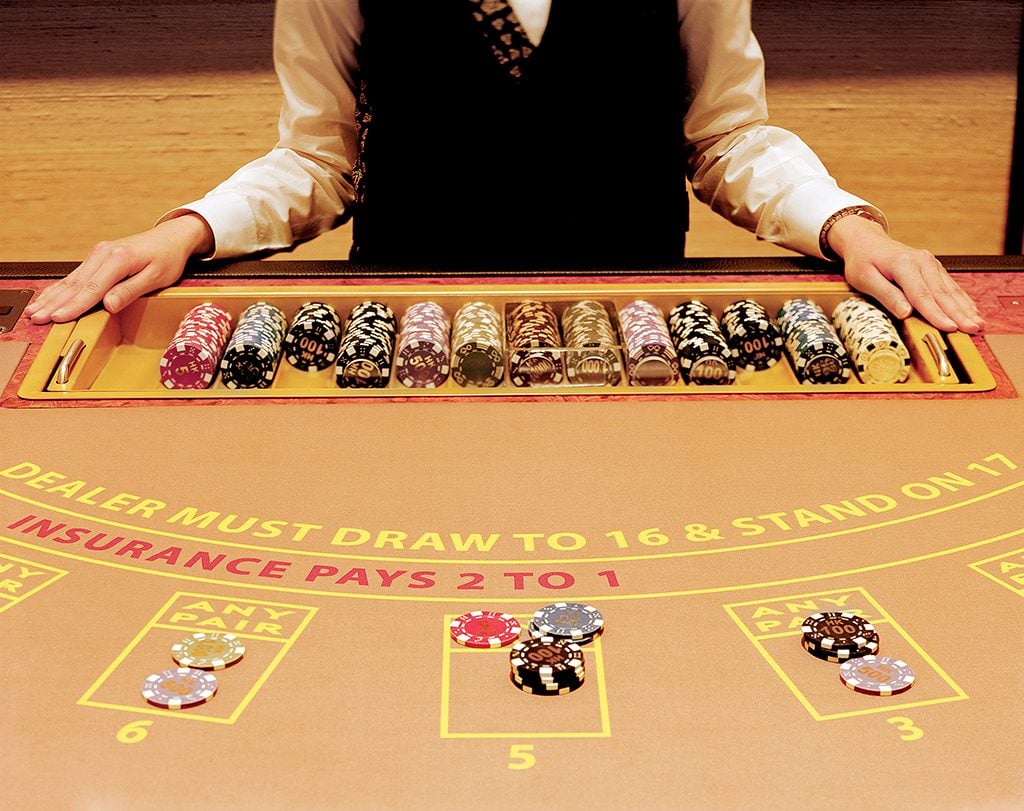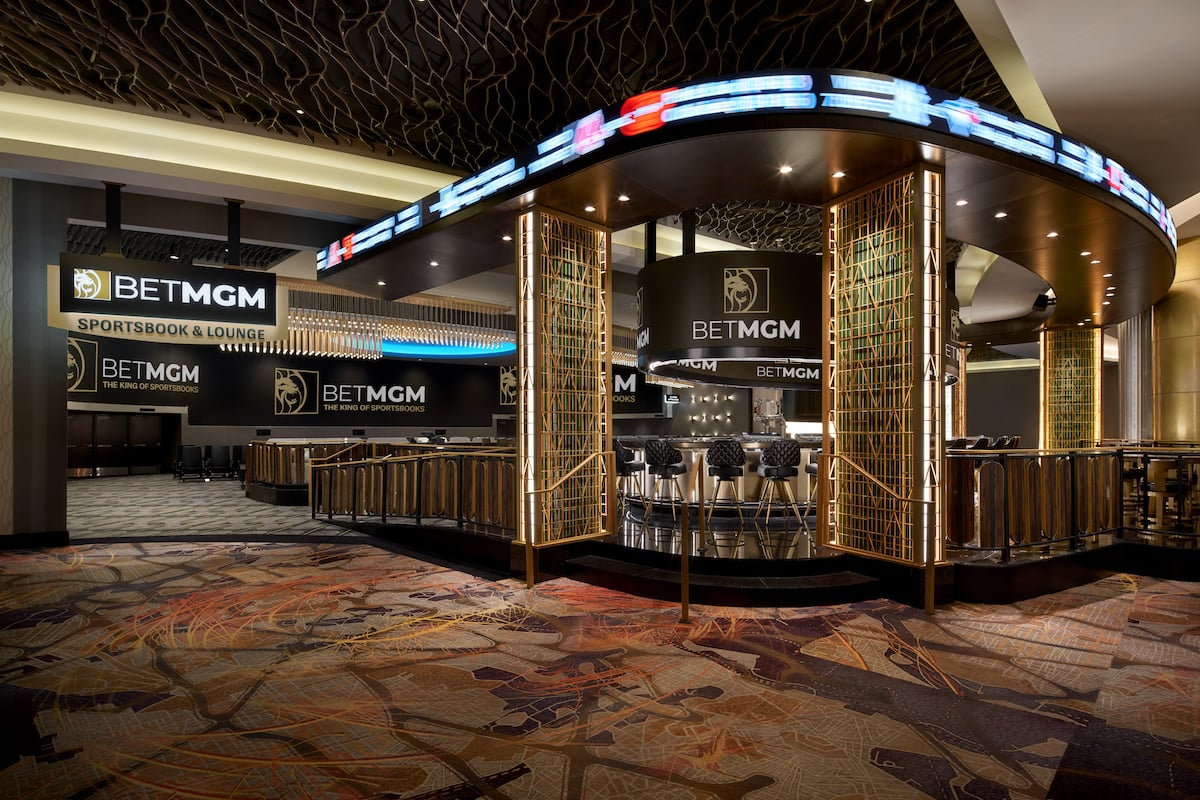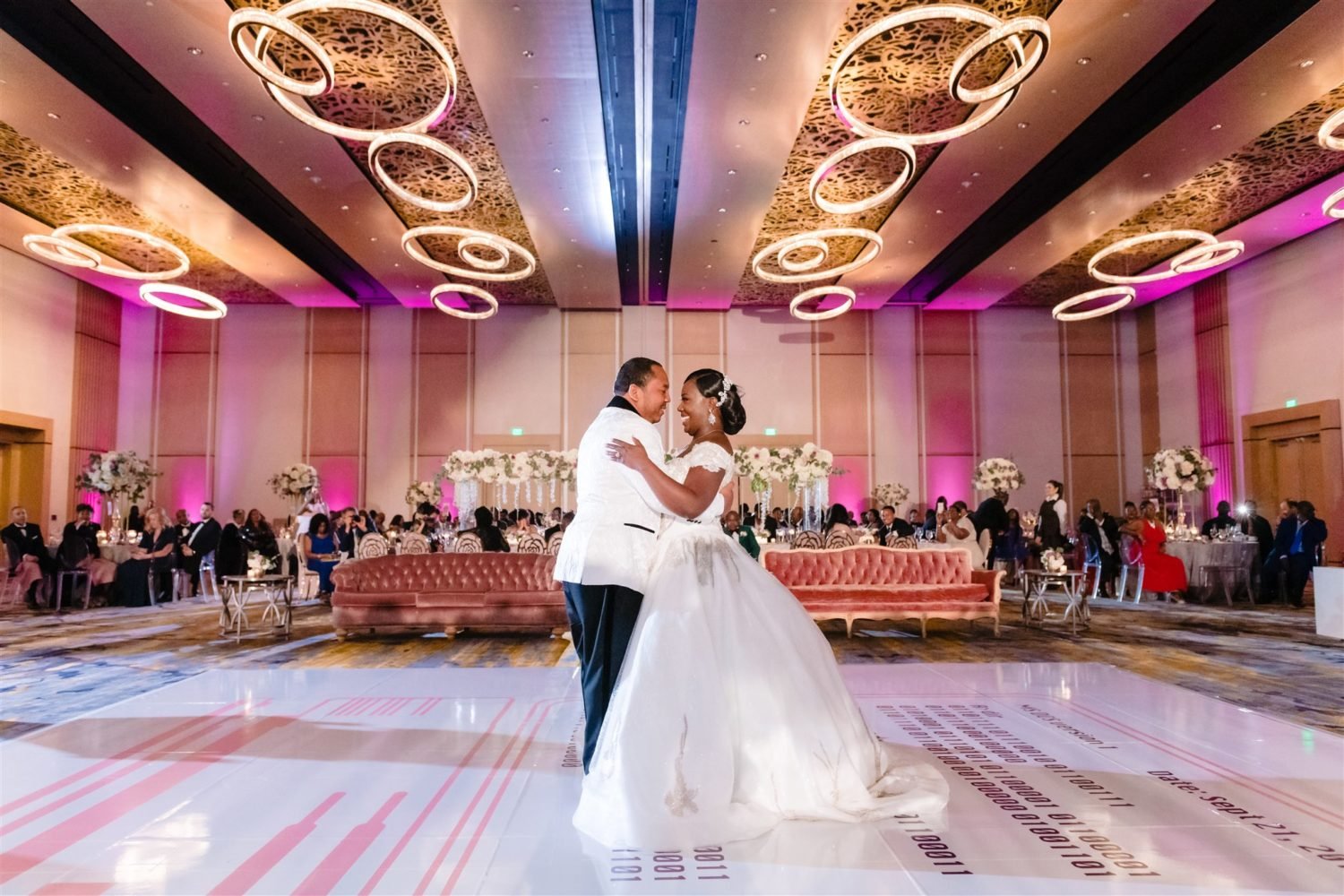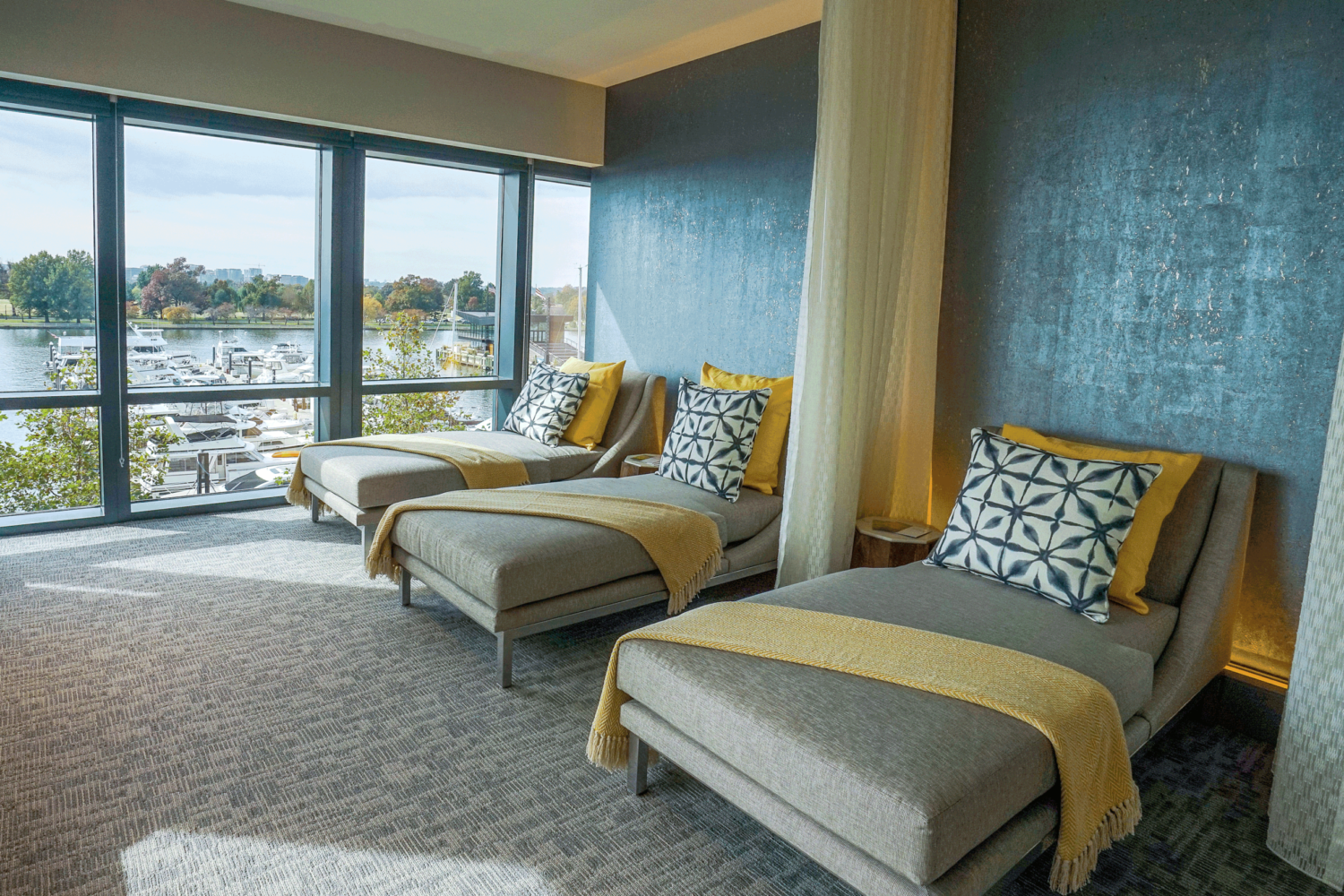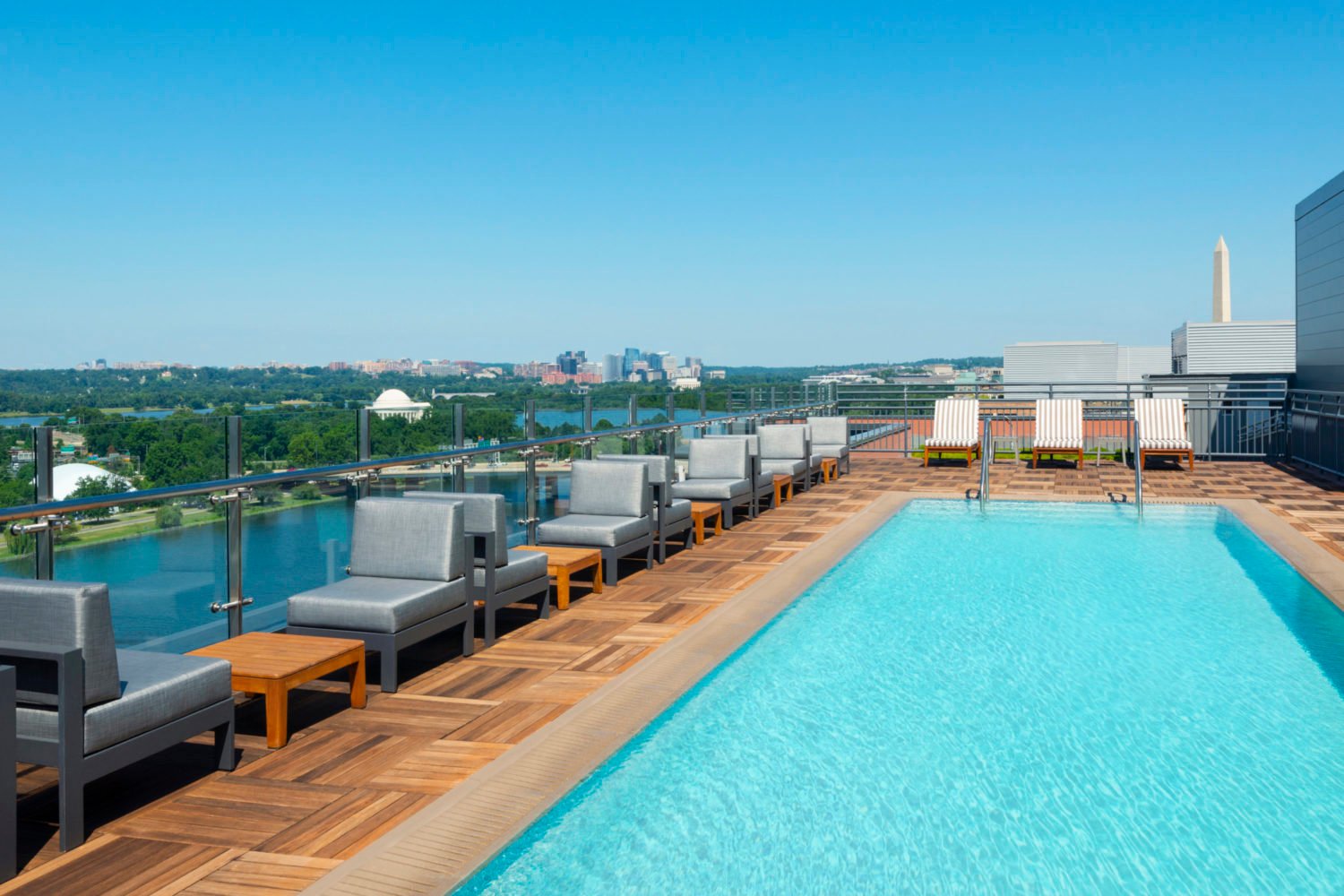With last December’s opening of MGM National Harbor, the era of casino-building in this region—which started in 2009 when table games were approved for Charles Town, West Virginia, and ramped up in 2010 when Maryland approved six casinos throughout the state—is finally complete.
Now with four major casinos within a 90-minute drive of downtown DC, there’s little reason for gamblers to head to Atlantic City or Las Vegas. (Atlantic City, in fact, is a bit of a ghost town, with nearly half of its boardwalk casinos shuttered.) Along with MGM, the other three close-by casinos are Live Casino & Hotel—formerly Maryland Live—just off I-95 between Washington and Baltimore; Hollywood Casino at Charles Town Races in West Virginia; and Horseshoe Baltimore.
While each of these is different (we’ll discuss that in a bit), what they have in common is that they’re noisy, filled with bright blinking lights, and designed—from the background music to the lack of windows to those lights—to separate you from your money.
Which is why for most people, walking into a casino can be an intimidating—and often expensive—experience.
In my conversations with casino newbies, I often hear the same defeatist refrain: “We’re setting aside $200 for the evening, and that’s what we’ll lose.” I guess that’s realistic, so I never try to talk anyone out of that attitude.
Personally, I walk into a casino every time expecting to win a fortune. That’s happened to me only a few times, if a $9,000 jackpot is a fortune. But I have a hopeful attitude. I admit that I’m comfortable in casinos—I’ve been to more than 100 over 25 years. While it’s true that most new or occasional gamblers don’t win a lot of money, you can walk away with some of it still in your wallet. Breaking even is okay.
Here are seven things to know before visiting a casino.
1. Don’t start making big bets right after arriving. Some people get a burst of adrenaline when they enter a casino. Walk around a bit and get acclimated before you wager. Also, it’s best not to overdo the drinking. Try to stay clear-headed if you intend to gamble.
2. If you plan to play table games such as blackjack, craps, baccarat, poker, or roulette, practice online before trying it at a casino with real money. When you play a game such as craps or roulette, in which chips are flying and some bets are made by gestures, you might assume the other players know more than you do. My experience has been that no matter how little you think you know, other players know less. Still, a little practice can make you feel more confident.
A number of online sites let you try your hand; one is CasinoGames77.com. Have more time? One of the best books to read before you go is Casino Gambling for the Winner by Lyle Stuart. Published in 1978, this classic is still available on Amazon. If you want to attack blackjack, check out Edward O. Thorp’s Beat the Dealer: A Winning Strategy for the Game of Twenty-One.
In most table games, you aren’t opposing other players—you’re playing against the house. Only in poker is this not true. Just remember that while dealers are instructed to be friendly and helpful, their boss’s goal is to empty your pockets. Although it’s fine to ask dealers for advice, they may suggest you make a bet that has a lower chance of winning. If dealers are helpful, you can tip them by making a side bet for them. That way you become the dealers’ partner, and if they win, you win.
3. Most of a casino’s floor is given to slot machines because those are the moneymakers. These days, slots have motifs that blatantly appeal to particular interests (fans of TV shows including Wheel of Fortune, The Big Bang Theory, and The Walking Dead). One machine, based on the entertainment show TMZ, will take a photo of the player and superimpose his or her image into the game.
My advice on playing the slots is simply to find one that looks fun and hope to get lucky. There’s no proven strategy for beating slot machines. That said, some are popular for a reason—they may be “looser” than other machines and pay out more.
If you put a $100 bill into a slot (today’s machines no longer take or dispense coins) and play it out—say you hit the bet button 100 times on a $1 machine—you should actually get about $90 back. Maryland law requires that slot machines return at least 87 percent of the money fed into them, but most casinos return about 90 percent. That’s on average—some people win big jackpots, and others lose it all. In reality, you’ll probably walk away with less than 90 percent, because the longer you play, the longer you keep giving the casino 10 percent of what you’re feeding the machine. I recommend cashing out when you’re ahead, pocketing your profit, and starting again with whatever your original stake was.
4. You don’t have to dress up to visit a casino—this isn’t Monte Carlo. While I am a believer in looking presentable (call me old-fashioned), the bigger issue is being prepared for any temperature. Casinos are freezing in summer—on the hottest days, you might want to bring a light jacket, especially for poker or table games where you might be sitting awhile.
5. This may sound crazy, but remember where you parked. In all the excitement of the casino atmosphere, it isn’t uncommon to forget where you left your car. I always take a picture of my parking space with my iPhone, including the row and level.
6. A fun, less intimidating way to spend an evening at a casino is to sit at one of the bars and play video poker. Usually there’s a choice of games—the two with the best chance of winning are Jacks or Better and Deuces Wild. Check the odds when you start playing, and make sure that at a minimum you get an 8–1 payout for a full house and 5–1 for a flush. Bars also have video blackjack, craps, and roulette.
7. Sign up for a player’s card. When you make your first bet, you’ll be asked if you have a player’s card. This allows casinos to track and rate your play. Some will even give you a win/loss statement at the end of the year. Unless you’re craving anonymity, it makes sense to sign up. While it’s mainly high-rollers who reap the benefits—Live Casino & Hotel gives away cruises to its higher-rated players—even infrequent gamblers can accrue points that can be used for meals, discounts, and free play. At MGM, your points can get you free rooms at its Las Vegas and Atlantic City casinos.
This article appears in the August 2017 issue of Washingtonian.

